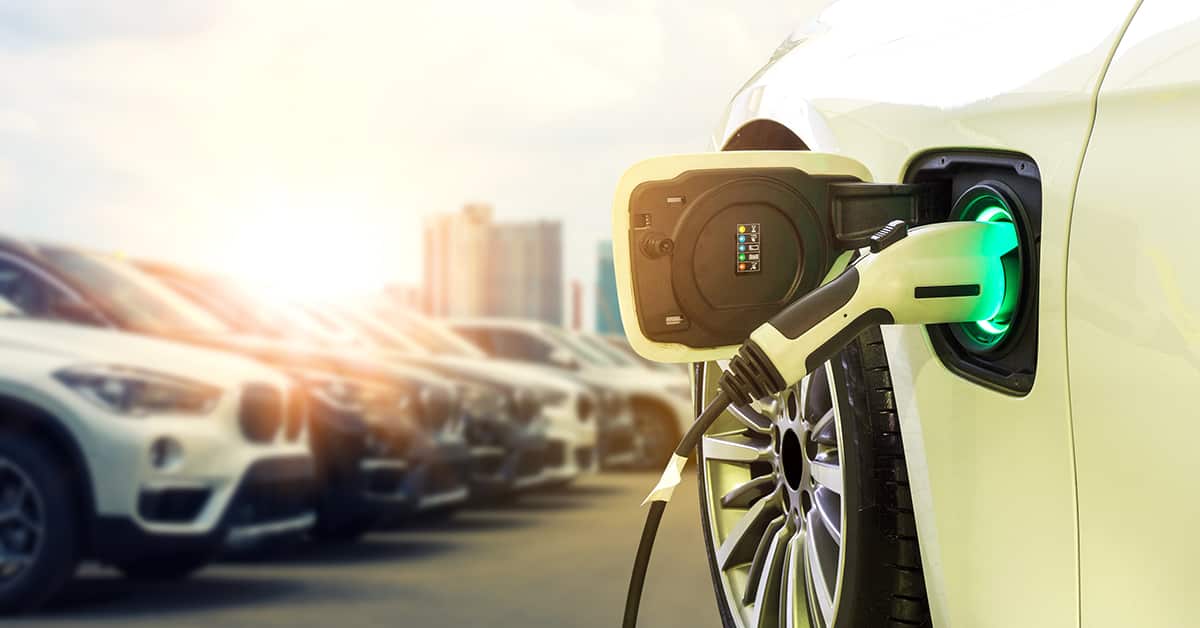As Russian sanctions bite, nickel prices are surging, which could make electric vehicles far more expensive.

As the war in Ukraine entered its second week, it continues to generate unanticipated consequences. Commodities markets were among the hardest hit, with surging nickel prices forcing the London Metal Exchange (LME) to suspend trading in the volatile metal after an unprecedented 250% spike in prices, which breached $100,000 a ton—more than doubling nickel’s previous all-time high in May 2007.
Russia is the third largest producer in the world of high-grade nickel (nickel sulfate), which is used in the manufacturing of lithium-ion batteries, as well as stainless steel, both of which are key components in electric vehicles (EVs). Russian company, Norilsk Nickel, in northern Siberia, is the world’s largest producer of refined nickel, supplying an estimated 17% of the world’s highest grade nickel. While the company has managed to evade Western sanctions so far, Russian shipments of nickel have slowed as sanctions ramp up.
Surging nickel prices reflect concerns about the future sourcing of this metal. “Nickel was already in tight supply, and if a large supplier is being taken out from the market, it will have a cascading impact in the near- to medium-term,” Kunal Sawhney, chief executive officer at research firm Kalkine, told Reuters this week.
Many analysts expect prices to remain volatile until the supply situation in Russia is clarified. Meanwhile, electric-vehicle manufacturers, hoping to cash in on growing global demand for ‘greener’ vehicles, are rushing to secure alternative sources of supply. In January, the world’s largest EV manufacturer, Tesla, signed its first US nickel supply deal with Minnesota-based Talon Metals.
Electric vehicles’ global market share more than doubled in 2021, reaching 6,75 million units, 108% more than in 2020, according to electric-vehicle world sales database, Evolumes.com. While EV’s market share of total global car sales are still relatively low (9%), they are tipped to grow even more dramatically in the coming years, as adoption of these emission-free vehicles will aid the world in its efforts to contain global warming.
However, EV batteries are not cheap, accounting for 25%–33% of the overall cost of electric cars, according to The New York Times, so a big rise in nickel prices will surely impact manufacturing costs and the ultimate price to consumers. As Morgan Stanley analyst Adam Jonas wrote on Monday: “[N]ickel is up 67.2% just today, representing around a $1,000 increase in the input cost of an average EV in the US.”
Boosting the Nickel Component
Nickel isn’t the only material used in the lithium ion batteries favored by electric cars. Cobalt and manganese are also needed to create the necessary chemistry, but battery makers have been raising the nickel component lately— in part because of its energy density, and because cobalt is expensive and difficult to obtain. Whereas the original NCM ratio ( nickel, cobalt, manganese) in EV batteries was 1-1-1, the nickel component now could be as high as 80%. In fact, Tesla is reportedly moving to battery cathodes with a 90% nickel component.
Concerns about the nickel supply, however, pre-date the war in Ukraine.The cost of EV batteries has more than doubled over the past 12 months, and last year, Tesla CEO Elon Musk sounded the alarm, tweeting, “Nickel is our biggest concern for scaling lithium-ion cell production.”
What Musk couldn’t have foreseen, however, was that a war would break out in Europe, and that the world’s leading producer of refined nickel would become a pariah state, subject to a Western trade boycott.



